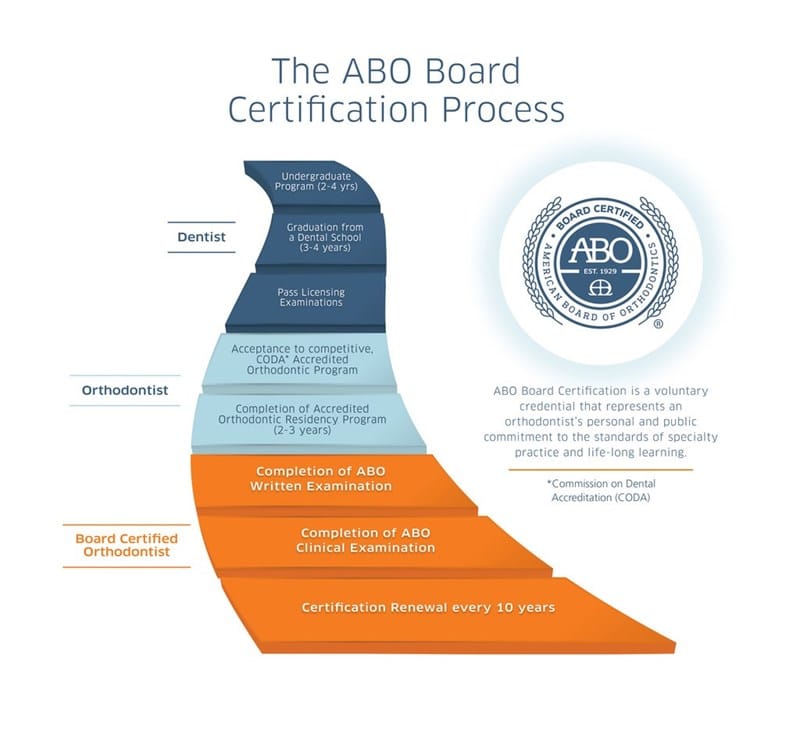About Board Certification in Orthodontics
Are All Orthodontists Board Certified?
No. While every orthodontist must be licensed to practice, only about half of orthodontists pursue Board Certification. This certification, granted by the American Board of Orthodontics (ABO), represents a distinguished achievement beyond the advanced education required to specialize in orthodontics.
The ABO certification process requires orthodontists to prove their clinical excellence by submitting detailed case reports covering a wide range of patient treatments. This voluntary certification involves a rigorous evaluation of the orthodontist’s knowledge, skills, and judgment by a respected panel of experts.
How Many Certifying Boards are Recognized by the American Dental Association in Orthodontics?
There is only one, the American Board of Orthodontics (ABO). Founded in 1929, the ABO is the oldest dental specialty board and the only one recognized by the American Dental Association (ADA) for orthodontics. Its mission is to enhance the quality of orthodontic care by promoting certification, education, and professional collaboration.
Why Do Orthodontists Choose to Become Board-Certified?
Board Certification is a mark of the highest dedication to excellence in orthodontic care. It reflects an orthodontist’s commitment to maintaining the most up-to-date knowledge and delivering the best patient outcomes.
By completing this voluntary certification, orthodontists demonstrate their advanced clinical skills and knowledge, showing both the profession and the public their dedication to exceptional care and continuous learning.
What Does the ABO Certification Process Involve?
The ABO certification process has evolved since 1929 to meet the specialty’s growing demands. Today, it includes:
Written Examination: A comprehensive 240-question test covering all essential areas of orthodontic knowledge.
Clinical Examination: After passing the written exam, orthodontists present detailed case reports from their clinical experience or residency, showcasing excellence in patient care.
Oral Examination: During this stage, a panel of examiners tests the candidate on a wide range of academic and clinical topics related to orthodontics.
Successful completion results in official Board Certification, which is valid for a limited time. Orthodontists must renew their certification every 10 years by demonstrating ongoing high standards of patient care.
Learn more about the American Board of Orthodontics by clicking here.







